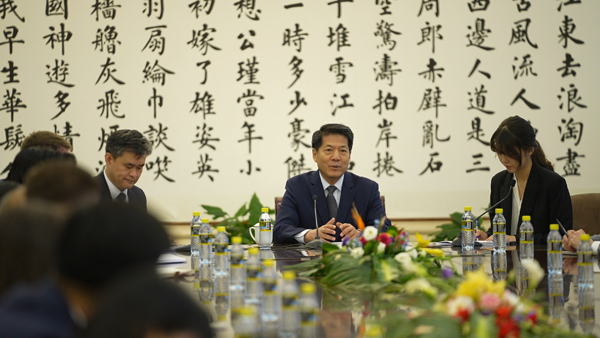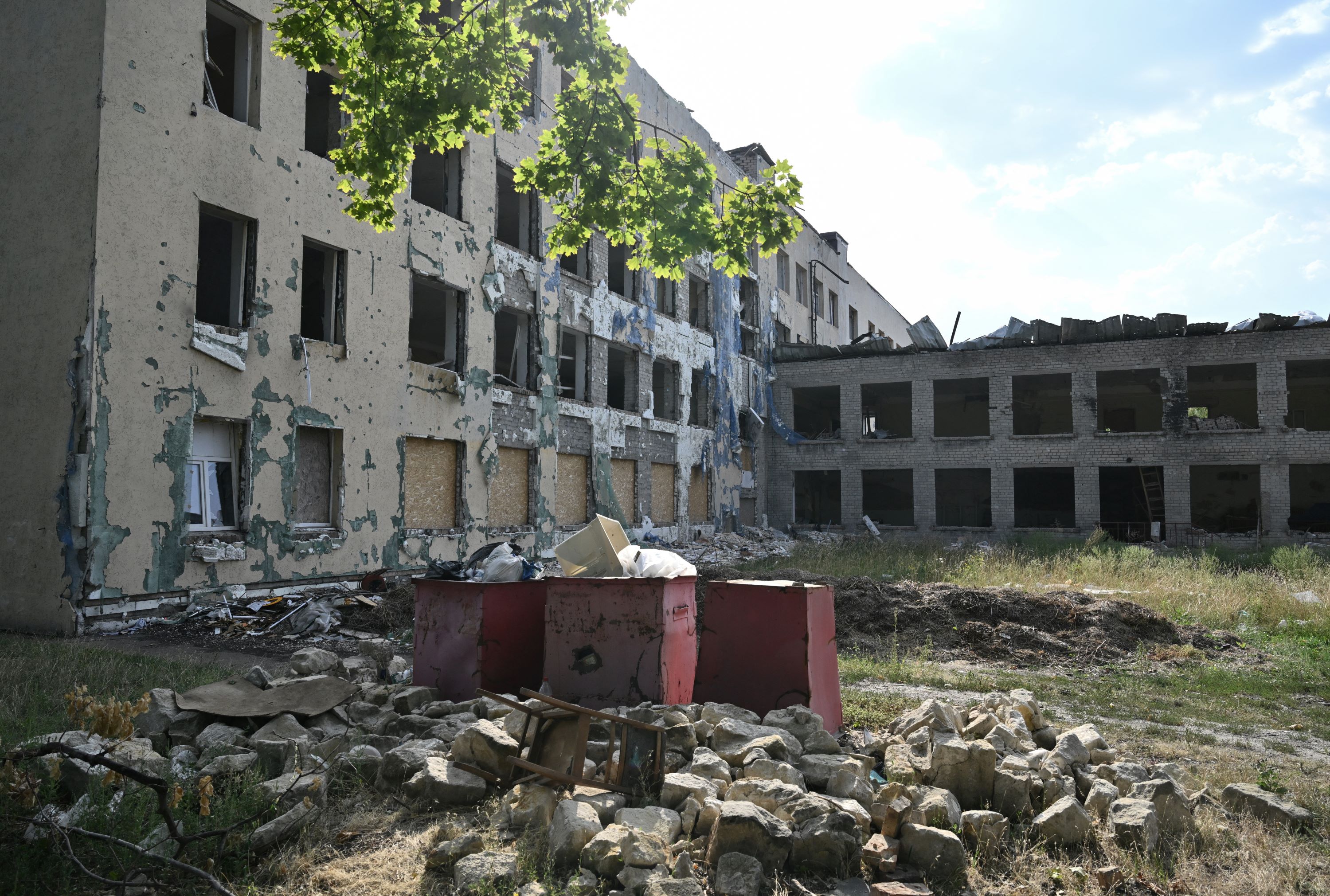
A senior Chinese diplomat warned on Tuesday that "hawkish forces" in some countries are abetting the conflict between Ukraine and Russia, which could further aggravate the situation in the region.
Li Hui, special representative of the Chinese government on Eurasian affairs, told reporters in Beijing that "all sides are worried" that Western countries would "continue to relax their conditions for Ukraine to strike Russian territory with aided weapons".
Li, whose fourth round of shuttle diplomacy on the Ukraine crisis from July 28 to Aug 7 took him to Brazil, South Africa and Indonesia, said that recent developments confirm such worries, as Ukraine opened a new front in the conflict by attacking Russian territory this month.
READ MORE: Russia, Ukraine each exchange 115 prisoners captured in conflict
Last week, the United States pledged a military consignment for Ukraine while expanding sanctions to cover more Chinese firms that it accuses of trading with Russia.
"All sides believe the reason why the crisis continues is not only about Russia and Ukraine, the conflict is actually manipulated by the military-industrial complex and the global war system they represent," Li said.
The international community is widely concerned over the further escalation and spillover of the conflict, and more countries believe the pressing task is to cool down the situation, he said.
READ MORE: IAEA chief says to visit Kursk nuclear plant over alleged drone attack
Li also slammed "one particular country" for using the crisis to shift blame and fabricate a "China responsibility" theory. Using illegal and unilateral sanctions, that country is threatening other nations that have normal economic and trade ties with Russia, he said.

Li's fourth round of shuttle diplomacy followed a meeting between Foreign Minister Wang Yi and Ukrainian Foreign Minister Dmytro Kuleba in Guangzhou, Guangdong province last month. It also happened at a time when the hope for a peaceful resolution of the protracted Ukraine crisis is dimming.
The envoy's previous three trips took him to several countries, including Russia, Ukraine, Poland, France and Turkiye, as well as to the European Union headquarters in Brussels.
ALSO READ: Russian official: Several Ukrainian units start to withdraw from Kursk region
Speaking on why he chose Brazil, South Africa and Indonesia for his latest trip, the senior diplomat underscored that these nations are representatives of the Global South and are important forces in promoting global peace and development.
The three countries share similar positions with China on the Ukraine crisis, he said, adding that they have maintained communication with both Moscow and Kyiv, upheld an objective and just position, and remained committed to the political settlement of the crisis through dialogue and negotiation.
China and Brazil jointly issued a six-point common understanding on the political settlement of the Ukraine crisis in May, and Li expressed hope that more countries will extend their support to this common cause.
READ MORE: Russia creates troop groups in border regions amid Ukrainian offensive
He encouraged more nations to create conditions and provide help for the two conflicting parties, in order to resume direct dialogue and negotiation. He called on various parties to focus on how to combine the peace efforts of all sides, and promote a fair and just solution.
Jian Junbo, deputy director of the Center for China-Europe Relations at Fudan University's Institute of International Studies, said that China's mediation efforts followed the principle of impartiality, respected the common interests and adhered to the majority opinion within the international community.


